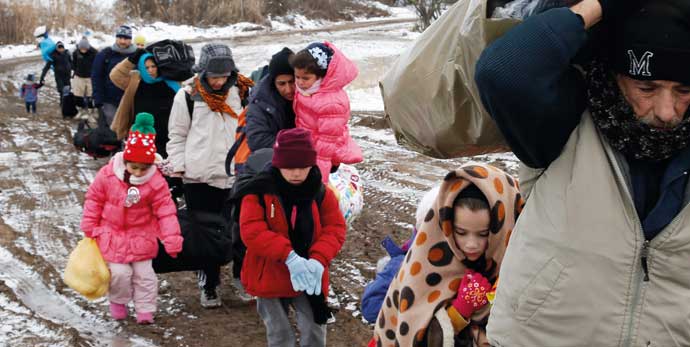One of the hottest issues in U.S. politics is immigration, mainly from Mexico and, in general, from the United States. Latin America. It is the most vibrant issue in the rhetoric we are witnessing in the debates between the presidential candidates, and it is causing a stark divide among both Democrats and Republicans. Los Angeles Archbishop Jose Gomez, himself of Mexican origin, said that the immigration debate is really a debate about immigration. "renewal of the soul of America" and called it "our generation's test of human rights", even though not all Catholics agree with him.
It is in the midst of this storm that Pope Francis visits Mexico (February 12-18). Throughout his trip to the border city of Ciudad Juarez, the Pope is expected to address the immigration issue even more directly than when he did so in the United States in September. While his Mexican audience will listen carefully to his words, they could have a major political impact in the United States. This is primarily because the primary race for the 2106 U.S. presidential election will take place in February.
Juárez is adjacent to the U.S. city of El Paso, and in a recent interview with the Our Sunday Visitor El Paso Bishop Mark Seitz has said that, in reality, the two cities are one, except for the border that divides them. In Juarez, the larger of the two, violence has frightened many of its residents. Bishop Seitz has said that bishops along the U.S.-Mexico border have common ties. "The church is not separated by national boundaries." he said. "We are all brothers and sisters." a message he hopes the Pope will also communicate.
With the second largest Catholic population in the world, Mexico is a logical destination for the Pope. In the plan for the 2015 papal trip to the United States, it was suggested that the Pope could enter the United States through Mexico, or celebrate Mass at the border, but it was deemed logistically unfeasible. Now, that Mass at the border will be celebrated on February 17 at 4:00 p.m. in Juarez, and that is where the Pope could speak about immigration. With several Republican candidates identified as Catholic, the political implications of the Holy Father's words will reach far beyond the border.








